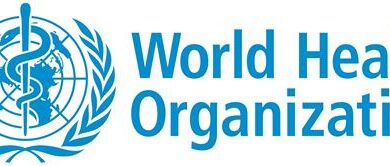Omicron COVID-19: British Airways Cancels UK Bound Flight, Passengers Stranded At Lagos Airport

There was momentary confusion Sunday at the Murtala Muhammed International Airport (MMIA) Lagos following the cancellation of the Lagos-London Heathrow, United Kingdom bound flight by the British Airways.
Although, the airline said the cancellation was due to operational reasons, Blueprint, however, gathered that the development might not be unconnected with the Omicron variant of COVID-19.
Blueprint reported that after 21 Omicron cases linked to the country, the United Kingdom added Nigeria to its red alert with effect from Monday (4.00am).
Curiously, the airline did not also operate its inbound flight from London to Lagos, thus raising the suspicion that the red alert signal by the UK might have fully taken effect.
Sources at the airport linked it to the implementation of the travel ban imposed on countries considered red flags to the new Omicron variant of COVID-19.
With 134 Omicron cases reported in the UK, from 4am on Monday UK and Irish citizens and residents arriving from Nigeria must isolate in a Government-approved quarantine facility for 10 days, and receive two negative PCR tests, as further precautionary action is taken against the Omicron variant.
When Blueprint visited the MMIA Sunday evening, several passengers who had thronged the airport for check-in procedures were turned back as there were few staffers of the airline to attend to their inquiry.
Airport sources further said “the situation was to get a clearer picture of what’s happening around the Omicron variant of a thing. Don’t forget that Nigeria has been added to the travel red alert. So, I have the feeling that the airline wants to get a clearer picture from the UK authority.”
But some of the airline workers, who volunteered certain information to the visibly disturbed passengers, said the flight was only rescheduled for the early hours of Monday.
Upon further probe into reasons for the cancellation, flyers, signed by the BA Customer Service Duty Manager Nwanorue Alexander, were freely distributed among the passengers.
Our checks revealed that BA flights from London which ought to have left Saturday night also did not operate.
It was rescheduled to leave Sunday morning.
Alerting its passengers an email Sunday, the airline wrote: “We would like to inform you of a change to the departure time of your flight to London Heathrow. Due to operational reasons, we have had to make this adjustment to our schedule. Your flight will now be departing Lagos a day later than originally scheduled.”
Nigeria added to red list
Meanwhile, Nigeria has been added to the travel red list Monday after 21 cases of Omicron reported in England linked to travel from this country.
Currently, the vast majority of cases in the UK have clear links to overseas travel from South Africa and Nigeria.
Over the past one week, 21 reported Omicron cases reported in England were said to have originated from Nigeria.
UK Secretary of State for Health Sajid Javid via his official twitter handle had said UK and Irish citizens travelling from Nigeria would be allowed into the country after quarantine for a certain period.
He tweeted, “In light of the most recent data, we are taking further action to slow the incursion of the Omicron variant. From 4am on Monday, only UK/Irish citizens and residents travelling from Nigeria will be allowed entry and must isolate in a managed quarantine facility.
“And from 4am on Tuesday, anyone travelling to the UK from countries not on the Red List will be required to take a pre-departure test, regardless of their vaccination status.
“Vaccines remain our first line of defence— the best way to protect yourself and your loved ones. Please get vaccinated or #GetBoosted as soon as you can.”
Since then, the geographical spread of Omicron has been on the rise, with 37 countries around the world now reporting Omicron cases and over 134 cases identified in the UK.
New analysis conducted by the UK Health and Security Agency (UKHSA) indicates that the window between infection and infectiousness may be shorter for the Omicron variant, which increases the efficacy of pre-departure testing as it is more likely to identify positive cases before travel.
In light of this emerging evidence and the changing global picture with regards to the spread of Omicron, from 4am on Tuesday, anyone wishing to travel to the UK from countries and territories not on the red list must also show proof of a negative PCR or LFD pre-departure test, taken no earlier than 48 hours before departure. This applies to vaccinated passengers and children aged 12 and above.
Airlines will be required to check for pre-departure tests alongside completed Passenger Locator Form, and passengers will not be allowed to board a flight without providing evidence of a negative test result.
Given the reduced incubation period of the Omicron variant, passengers are advised to take the pre-departure test as close as possible to their scheduled departure to the UK and no earlier than 48 hours before travelling.
Additional measures were set out by Prime Minister Boris Johnson on November 27, and the Government will review all temporary measures after three weeks to ensure that they remain necessary and proportionate, and this will take place on December 20.
Javid said: “We knew this winter would be challenging but the arrival of a new variant means we must further strengthen our defences.
“As our world-leading scientists continue to understand more about the Omicron variant we are taking decisive action to protect public health and the progress of our COVID-19 vaccination programme.
“I urge everyone to do their bit to slow the spread by following the new travel rules, wearing masks where mandatory and most importantly getting the booster jab when called.”




